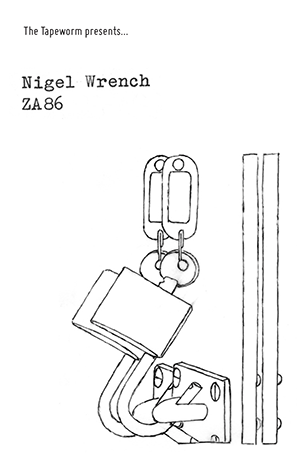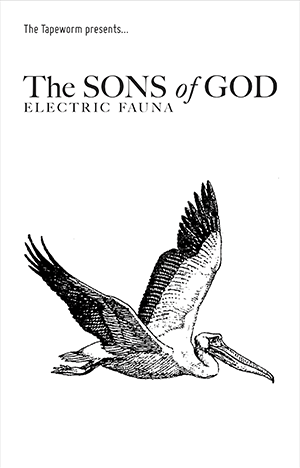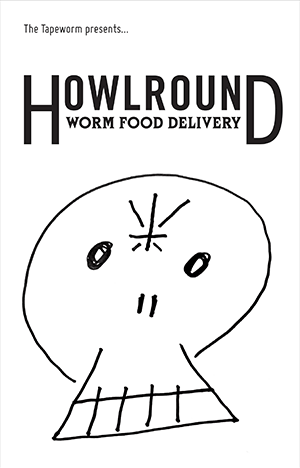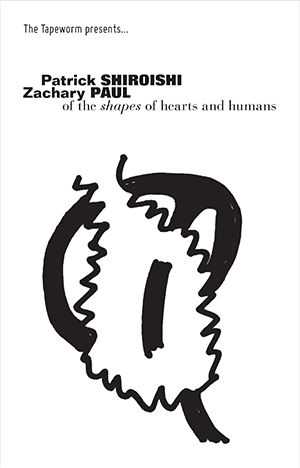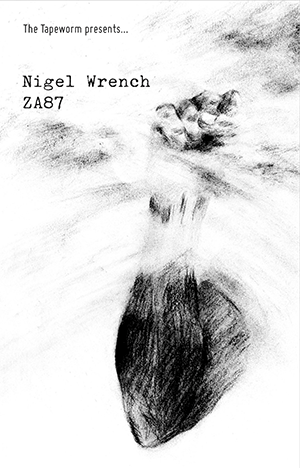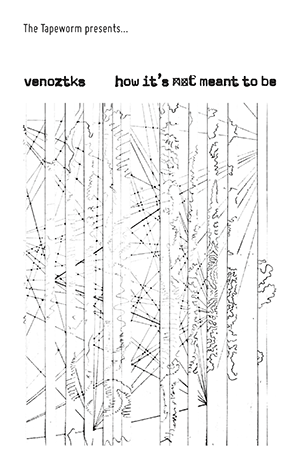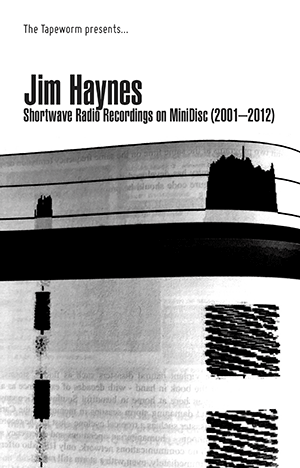TTW#86 – Nigel Wrench – ZA86
Cassette only – limited edition of 150 copies.
SOLD OUT AT SOURCE
Track listing:
A: Part One – “Why do the white people just shoot us?” [15m00s]
B: Part Two – “We have crossed from death to life.” [14m48s]
Illustration (after a photograph by Diane McCarthy) – Martin Crawley
ZA86 is a 25 year old radio reporter’s personal journey in the final, most repressive moments of a hated regime.
The last years of apartheid were the most brutal as a low-level civil war was battled out on the dusty streets of South Africa’s black townships.
Released on 11th February 2015 – the 25th anniversary of the day Nelson Mandela walked to freedom – ZA86 is edited from 9 tapes in the unique cassette archive of Turnstyle News, unlocked for the first time from a Cape Town cellar. It takes the listener to a violent world with moments of great beauty. The reporter, far from being edited out, is very much present, as are the thumps and bumps he hears in his headphones.
From a May Day call to arms by Winnie Mandela to the extreme views of white right wingers; from 19 year old platoon leaders to the aftermath of an attack by police and soldiers in Soweto; from the words of envoy Terry Waite to the funeral of a television cameraman and the Band Aid-like pop song released by the apartheid regime, ZA86 unflinchingly documents the disturbing reality of 1986 in South Africa. A journey into the heart of apartheid.
Reviews
The Wire (UK):
In 1986, Nigel Wrench was a 25 year old radio journalist reporting from South Africa as the Apartheid regime of PW Botha teetered on the brink of collapse. “ZA86” is a 30 minute collage of his tapes, rescued from a Cape Town basement. Stylistically not dissimilar to Adam Curtis’s 2015 documentary “Bitter Lake”, its hypnagogic float through the rushes feels curiously vivid, free of the dating or distancing effect further media packaging might bring. Wrench checks his levels as Winnie Mandela addresses a fired up crowd in Soweto; unrepentant Afrikaner racists doubt the revolution unfolding before their eyes; a television cameraman, killed in action, is buried in a brief church service. Most of all, though, “ZA86” captures the sense of change in the air, a pensiveness and tension that is given voice as Wrench finds himself amidst a crowd that suddenly comes together in a pained, hopeful chorus.
The Quietus (UK):
Few journalists have quite so intimately captured the essence of their era’s great moral panics as Nigel Wrench. In addition to writings about life with HIV and AIDS since the early 90s the Birmingham-born, but South African raised, Wrench was on the frontlines of the struggle against apartheid throughout the 1980s. ZA86 takes us right back to South Africa circa 1986, when the regime entered its horrific final phases, and pockets of civil war broke out across the country. Bruises and all, the two 15-minute collages taken from nine recently unearthed archival tapes of Wrench’s journalistic recordings also capture something of the very process itself. Clicks and buzzes, rough cuts, and multiple takes of the same interview questions appear, as well as recordings from radio of an ill-fated pop song put out by the government at the time in the style of Live Aid.
Several fantastic speeches lie on either side of the tape, with a pretty fair amount of time given to the almost bizarrely hateful right wingers as to the inspire black South African freedom fighters. The presence of Wrench’s own voice on the tape lends the collages an unusually strong sense of first person narrative. Beautiful field recorded South African singing litters the background of the tapes, as well as the ugly sound of the aforementioned sickly Geldof-style pop song, “Together We Will Build a Brighter Future’, and we wander with Wrench through the soundscape of a place deeply troubled by struggle. How imperialism worked for as long as it did boggles the mind. Listening to ZA86 makes the sheer madness of anything as blatantly wrong as apartheid so crystal clear, and the obvious ways in which division and fear make life worse for all parties so unignorable.
In total it’s a chilling and at times stunningly beautiful document from the time, and a testament to the very art of journalism too. Wrench’s diaries (made at the same time , and documented on a website linked below) detail the precise moment the man couldn’t remain neutral in his coverage on Wednesday 27 August 1986: ”Enough, no longer. A regime like this one sears to the heart. (They still want to bring out a pop song? Fiddling while Rome burns? This is a new slant on that.)” [Tristan Bath]
Boomkat (UK):
“ZA86” presents reporter Nigel Wrench's remarkable documentation of South Africa under apartheid in 1986, using tapes unlocked for the first time from a Cape Town cellar. Released to mark the 25th anniversary of Nelson Mandela's release from prison, “ZA86” offers a detailed portrait of a critical point in the regime’s final and most oppressive years, built using extracts edited from nine tapes out of the unique cassette archive of Turnstyle News. From street level perspectives of white right wingers and 19 year old platoon leaders to the funeral of TV cameraman and a May Day call to arms by Winnie Mandela, it’s an unswerving reflection of a real hell on earth. Highly recommended.


